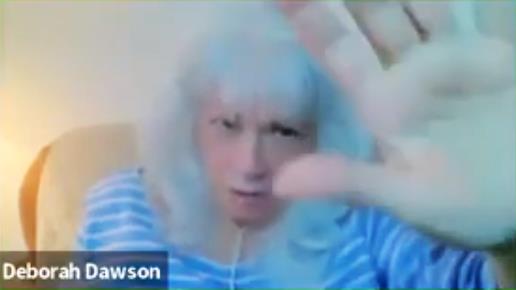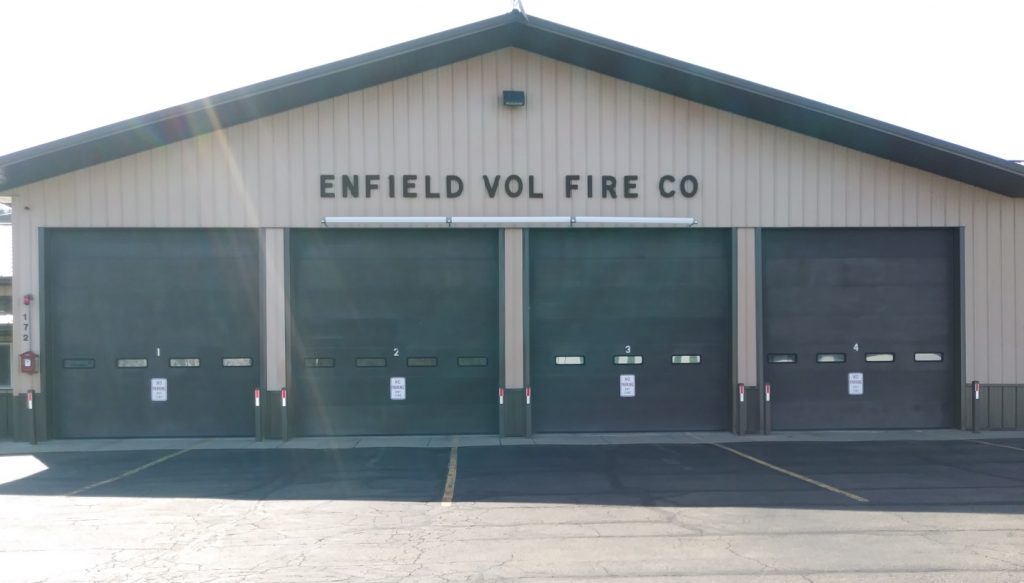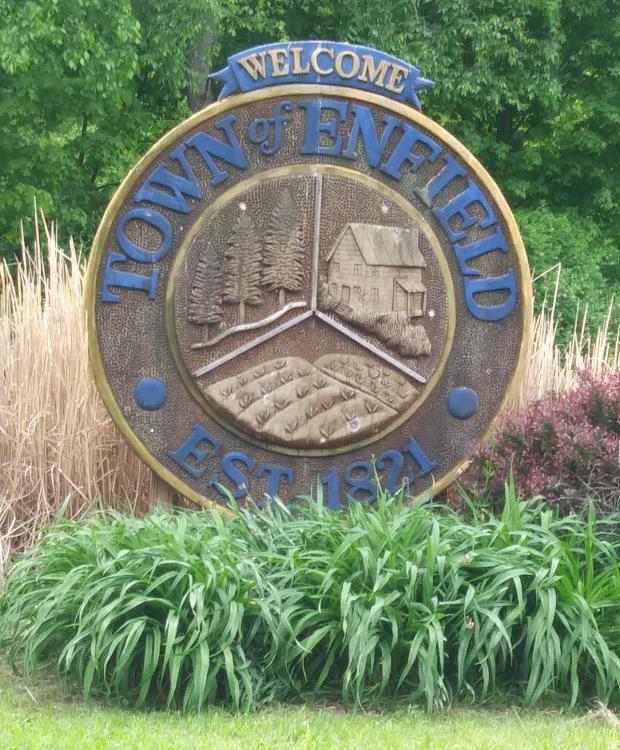Public Transparency and the ARPA Awards Process
Posted by Robert Lynch; May 13, 2022
“I think the Town Board is going to wish that they’d put that $348,000 in the center of town and burned it.”
A well-known Enfield leader in an email to this Councilperson, April 14th.
****

On Tuesday, May third, the Chair of the Tompkins County Legislature appointed a committee to assist its consultant in awarding funds under the “Community Recovery Fund,” Tompkins County Government’s back-door answer to the federal American Rescue Plan (ARPA). Some three weeks earlier, the Enfield Town Board established its own, citizen-based ARPA Advisory Committee. Which of these committees will be open to public view, and which will stay locked behind closed zoom-room doors? Take a guess.
On this more recent night, Chair Shawna Black appointed the County Recovery Advisory Committee’s five members. Danby Legislator Dan Klein will chair the group. Legislators Lee Shurtleff, Anne Koreman, Veronica Pillar, and Black, herself, will join Klein. As the appointments were read, Budget Committee Chair Deborah Dawson, attending remotely from her often-frequented living room couch, waved desperately to get Black’s attention.
“There’s an important distinction to be made,” Dawson sought to clarify. “This is not a committee. This is a Working Group.” (Working Groups, it seems, meet in secret.)
“No, Deb,” Black said to correct, “It actually is a committee.” The Chair explained she’d reclassified the panel following conversations with County Attorney Bill Troy. And she did it for a reason.

“Ideally,” Black stated, “we really want to make sure it’s as transparent as possible to the people applying, to our community, so that they understand the conversations. And we should not be having the conversations behind closed doors.”
“So we will have staff there,” the Legislature’s Chair continued. “It will be available on zoom. We will have to have somewhat of an agenda in order for us to be as transparent as possible with this process.”
Enfield Supervisor Stephanie Redmond, you could learn a lesson from Shawna Black’s tip of the scales to transparency. So, too, could three other members of our Town Board. I suggest Black conduct a seminar of sorts. But when you meet, you need not necessarily invite me, although I’d gladly attend. You see, I’m already a convert to the cleansing power of legislative sunlight.
Tompkins County has some $6.5 Million to give out in its first round of the Recovery Fund. We in Enfield hold a meager $348,000 in ARPA promises. We must spend our money wisely. We must do so fairly. We cannot satisfy every applicant’s request. We cannot make everyone happy. But neither should we make anyone mad. That, my friends; my constituents, will be a challenge. Given how we’ve framed the process at the start, I fear this will not end well. Worst case, it could tear our community apart—yet again.
At our Town Board’s April 13th meeting, over my lone objection, our Board created the “2022 American Rescue Plan Act Advisory Committee.” Initially numbering eight members, but already growing, the Enfield ARPA Committee is populated by a mix of prominent local residents and chosen elected officers. Supervisor Redmond appointed herself to the committee. She also named Councilperson Jude Lemke. The committee will meet in private. Nonetheless, after its first session, it did release meeting minutes, an encouraging sign.
The Board gave the Advisory Committee a mission: “to increase engagement with residents” and “to advise the (Town) Board on how to expend these funds.” One easily sees the committee as a funding gatekeeper; as a first point of triage. It will likely sort through and order agency funding requests, and presumably do so in confidence. Most recently, it has sought to marshal others—including me—to identify backup options for applicant support; to seek matching funds and maybe to write grant proposals. Well, that’s a new one for me.
Most troubling, however, the committee elevates the opinions of just two Town Board members above those of the other three. It heightens their power and prominence. The double-standard created only reopens a wound torn wide by past controversies. It allows critics to envision the specter of an Enfield “Shadow Government.” Moreover, it provokes jealousy and envy when collegiality and equality of input should prevail.
As one prominent—and I will respectfully leave unnamed—Enfield community leader wrote me the morning after the committee’s formation:
“This reminds me so much of a happy family that ends up hating each other once the parents die and money and possessions need to be divided, greed! This committee has got the potential to be the worst mud throwing committee I have seen in a while.”
My constituent was not through. “I think the town board is going to wish that they put that $348,000 in the center of town and burned it.”
That, my community, is not a good start.
At the “Public Forum,” that began our April 13th meeting—our Board chose not to assign it the formality of a “Hearing”—we invited comment on how Enfield’s $348,000 in ARPA funds should be spent. Worthy agencies stepped forward; three in particular.
- The Enfield Volunteer Fire Company sought $207,000, the vast majority of it, $194,579, requested to construct new facilities to house up to six Fire or EMS personnel in what’s commonly called a “bunk room.” The goal is to speed response time and increase manpower for emergency calls. A much smaller portion of the requested total, $8,500 would update the company’s aging audio/visual training equipment. The request also included two lesser items.
- The Enfield Food Pantry, in an appeal supplemented by a petition bearing 137 names, sought $150,000 to acquire property as the site for an expanded Food Pantry and Community Garden.
- The Enfield Community Council asked for moneys to underwrite as many as four projects at its new community center: 1) to replace its roof; 2) to install an emergency generator; 3) to upgrade its kitchen to commercial grade, capable of serving every Enfield resident two meals per day under emergencies; and 4) to replace a water-damaged, attached trailer with a permanent “teen space” addition. ECC officials did not supply cost figures at the forum that night, but the generator’s installation estimate has since come in at $66,000.
One additional commenter mentioned headstone maintenance at town cemeteries. Highway Superintendent Barry “Buddy” Rollins urged funds be spent on the Town’s “inner-structure,” presumably Highway Department facilities. Rollins argued inner-structure investments would benefit “all the people of the town,” not just a few.
“Obviously, the requests we’re getting exceed the amount of money that is available,” observed Councilperson Lemke. “So it’s not going to be possible to accommodate everybody, and it’s going to be a tough choice.”
And there lies the problem. Enfield is a small town. Neighbors know neighbors. Our intimacy can work to bring us all together or with equal strength to pull us each apart. As consultant Ronald Mendrick wrote last year about Enfield, in a report commissioned and paid for by Enfield:
“The consensus of the information gathered is that the Town has a long history of controversial relations at meetings and among some Town officials who have in some instances come and gone…. The history of controversy as reported by many includes yelling and profanity at Board meetings, disrespectful comments back and forth among the public and public officials, attribution by some that others have personal, political, and/or unseemly motives, and much less than civil relations.”
So to avoid the errors of the past, we must not tempt ourselves to revisit the places of the past where dissention and hostility breed. And one of the surest ways to step temptation’s way is to create the slightest perception that Enfield’s voters have assigned a few of their elected leaders or, perhaps, one or more of their high-profile service agencies special privilege and influence over others. That’s my worry.

“The Town Board is going to have the ultimate authority in deciding where the funds go,” Supervisor Redmond reminded us all as the funding forum concluded. “They are just an advisory committee that brings information next to the Town Board,” she insisted.
Maybe so. But opinions matter. And just as Justice Alito’s leaked draft marked the Supreme Court majority’s course in Dobbs v. Jackson Women’s Health, so, too, will the Enfield ARPA Committee’s final preferences impact subsequent Town Board decisions.
****
I had a plan that April Enfield night, at a meeting that for many reasons and on many levels I’d rather block from memory. Note that it’s taken me a month to re-visit the audio archives and retrieve the exact quotes to reconstruct the narrative. It was a meeting better forgotten than recalled. We, Enfield’s Town Board, did not serve you well that night.
I held no doubt that the Board’s majority would create the ARPA Advisory Committee, whatever I said. But prominent voices urged me to seek change. They advised me to purge the committee of elected officials. They instructed me to strip politics from deliberations as much as I could. When lay citizens calmly weigh the facts, finding no need to posture or to troll for votes, a more equitable, even-tempered outcome may blossom. So I had hoped.
I offered my carefully-crafted substitute resolution that would have reconstructed the ARPA Committee. As often occurs, my amendment died for lack of a second. I then opposed forming the committee altogether. I had no other choice
But before the final vote, I offered a second amendment; one shorter, and one Shawna Black would have liked:
“Resolved, that all meetings of the American Rescue Plan Act Advisory Committee shall be open to the public, properly noticed and recorded, with public attendance and participation not only permitted, but also encouraged.”
Likewise, of course, only silence greeted my motion. No second; no action. Yet I was not through. Our audio record will confirm the words I then spoke—and with passion. As you can tell, I was not pleased:
“I will be very respectful of our Civility Resolution, so I will not say things that I might like to say but don’t think it‘s appropriate to say. But it’s inappropriate that we have meetings that will be closed evaluating this funding mechanism, and that only two of the five Board members will be permitted to participate in those closed meetings.
“We have a Double-Standard Town Board, where some are more favored than others. And the Supervisor always makes sure she sits on the committee and always picks a favorite Councilperson to sit on the committee, specifically excluding others, including this speaker.
“And I think the people of Enfield are sick and tired of it. It smells like a springtime skunk. And people can smell it all the way from Van Ostrand Road to Iradell; from Buck Hill Road to Sheffield. And I’ll tell you; this is going to end because people are dissatisfied with it. And this has the potential—for all the work we’ve done in the past two, three, four years to pull this Town together— the wrong way to handle this procedure has the way to rip this Town apart, and put one institution, one organization; pit it against another for funding. And I don’t want to see that happen.
“That was why I wanted to have the Committee be of civilians only; of non-politicians only, who would sit in private, perhaps, and review these applications, and come to us as a group of citizens, not politicians, and say to us, ‘This is what we recommend, and this is how we want to parse this money out to this agency, this organization—maybe give this organization more than this other organization.’ And it would keep us as a Town Board from tearing this community apart.
“But I tell you, this is going to be a bad thing; to have this kind of committee with two of five Board members on it, and only two, to make these recommendations, and it’s going to seem like a stacked deck. And I will vote against this Resolution.”
And I did. But why, then, did I later smile when Shawna Black, weeks later, made her pitch for transparency and set Deborah Dawson straight?

Good luck to the Enfield ARPA Committee. I wish you well. I will work with you. I welcome reading your minutes. I trust you will be fair… and objective. Yet I wish I could meet with you as you meet, and do so in real-time. Or in the alternative, I would wish each of our five Town Board members were kept equally in the dark until your recommendation is ready. Neither option will occur. I know that. I regret that. I only hope that we as a community of friends can survive this ordeal. If we do not, Uncle Sam, you did us no favor. Take your money back.
Bob Lynch
###

